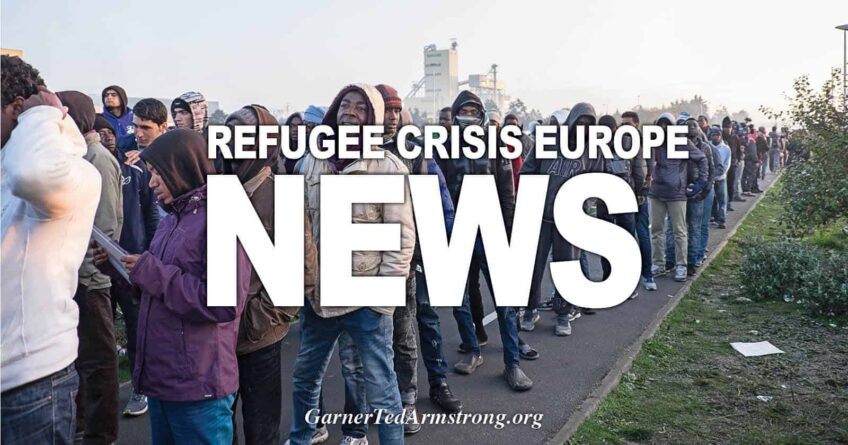Turkey has maintained an open-door policy since the start of the Syrian conflict and now hosts 3.6 million refugees. Representatives of international humanitarian organisations underlined the need for a greater sharing of the refugee burden during a symposium held at the UK parliament on May 9.
“When I give a presentation like this I often ask the audience which country is the largest host for refugees in the world? And the answer is rarely Turkey”, said Matthew Saltmarsh, the Senior Communications Officer at UNHCR, the UN’s Refugee Agency.
The number of refugees in Turkey amounts to more than 4% of the country’s total population and the Turkish government has spent over €25.1 billion on humanitarian aid -proportionally more than any other nation in comparison to Turkey’s GDP.
The UNHCR is currently working on a ‘global compact’ that will be proposed in the 2018 annual report to the UN General Assembly, which would serve as a framework for spreading out responsibility and enable countries to cooperate more effectively in their response to the large-scale migration of refugees.
Speakers from the different organisations stressed the need for the international community to financially and morally support hosting countries while noting that the European Union has only paid half of the €6 billion promised in its 2016 refugee agreement with Turkey.
The number of places allocated for resettlement has steadily declined since the agreement was signed, with only 75,000 places available in 2017, which comes at a time when the living conditions of refugees in Turkey are precipitously deteriorating.
Child labour and human trafficking is also a significant problem are becoming more common as more people are forced out of desperation to work on the black market. Early marriage is also becoming more prevalent at a time when educational rates have fallen.
A study conducted by Emergency Social Safety Net shows that 19% of the Syrians in Turkey are living below the extreme poverty line.
“Where Turkey differs slightly from the other countries in the region is that the government very much takes the lead in the refugee response, coordinating the efforts of the UN agencies, unlike Jordan or Lebanon,” Saltmarsh said.
Ankara offers temporary protection to refugees and gives them access to free healthcare, education, and in some cases, provides work permits. Facilitating access to work may reduce the financial burden but Abby Dwommoh, a public information officer and spokeswoman for the International Organisation for Migration highlighted the challenges of integrating so many people into the labour market, especially in Turkey where unemployment rates have been rising over the last two years and where the economy is in deep crisis following the collapse of the national currency, the lira.
The lack of places for resettlement in the EU means that refugees settle in Turkey and some cities, including Kilis near the Syrian border, host more Syrians than Turks.
“The latest Regional Refugees and Resilience Plan report shows that while you have 3.5 million Syrian refugees, you have a population of 8 million local citizens in Turkey who have been negatively affected by the inflow of migrants,” said Saltmarsh.
Without greater support from Europe, the situation for both Syrians in Turkey and Turks, themselves, will become increasingly difficult over the coming years.
Source: https://www.neweurope.eu/article/turkey-needs-greater-burden-sharing-managing-syrian-refugee-crisis/
[Disclaimer]








